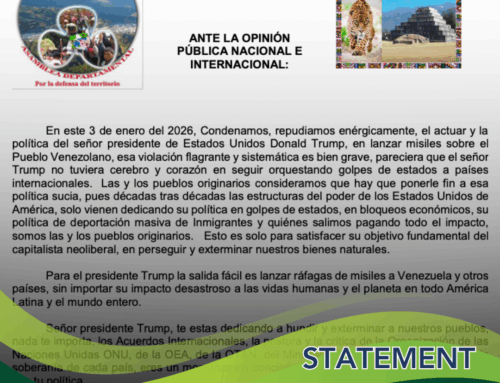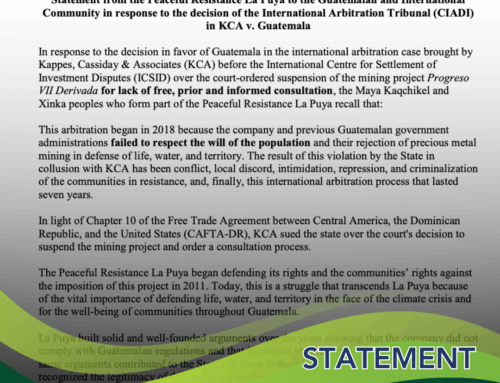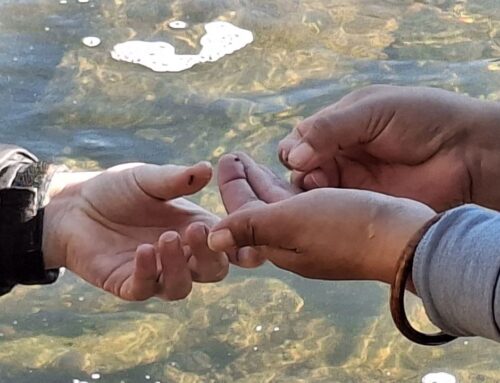“In the face of a storm, some animals go underground and bury their heads. But eagles fly above the storm. We need to be like the eagles…with this storm upon us, we choose to rise higher, knowing that our struggle is one that has value and dignity.” Teresa Muñoz, San Jose la Sierra
On March 1, 2015, Teresa Muñoz addressed hundreds of people in the town square in Nueva Santa Rosa to reiterate one seemingly simple but overwhelmingly complex reality: “We are still here. We are still in resistance.”
She was joined by dozens others in loudly stating their ongoing opposition to the Escobal silver mine operating in the nearby municipality of San Rafael las Flores, in southeastern Guatemala. Recent statements by the U.S.-Canadian mining company Tahoe Resources that opposition to its Escobal project has disappeared did not resonate with locals who had gathered to hear the stories of those repressed and criminalized during the 2013 state of siege aimed at quelling dissent.
Teresa, who confirmed continued resistance in the face of fear, was joined by more than a dozen others in recounting the negative impacts of mining, pointing to the family divisions, criminalization, and remilitarization that have taken place following the arrival of the transnational mining company to the area.
In May 2013, Teresa fled from her home in the community of San Jose la Sierra and walked more than 70 kilometers to Guatemala City. She ran from the Guatemalan military who had come to her community to arrest her during the state of siege enacted by the government of Otto Peréz Molina in the neighboring municipalities of Mataquescuintla, San Rafael las Flores, Casillas and Jalapa.
| Teresa sits in front of her home in San Jose la Sierra. |
Although the pretext for the siege was to combat narco-trafficking in the area, Teresa and many others who had spoken out against the presence of the mine found they were on a list for arrest. Some went into hiding while others went to prison, and after seven months, a Guatemalan court dismissed all charges for lack of merit. People returned home to find the subsistence crops they had planted months prior were ruined, cows recently purchased were starving, and newborn babies they had left had grown dramatically.
Together with other members of the Diocesan Committee in Defense of Nature (CODIDENA), Teresa spoke about the real impacts criminalization has had in her life and the life of her community. But while the U.S. and Canadian Embassies back up Tahoe’s claim that opposition is no longer a reality in the area, Teresa affirms: “The face of the resistance may have changed slightly, but we’re still here and we will always be while God continues to grant us life.”
 |
| Artemio speaks about his experiences being shot by private security outside the mine on April 27, 2013. A criminal case is currently being processed against Alberto Rotondo, the former head of security who allegedly ordered security to open fire on peaceful protestors. Artemio, alongside at least 6 others, were shot. Tahoe Resources is also currently facing a civil lawsuit in Canada for violence at the mine. #TahoeOnTrial |








Leave A Comment